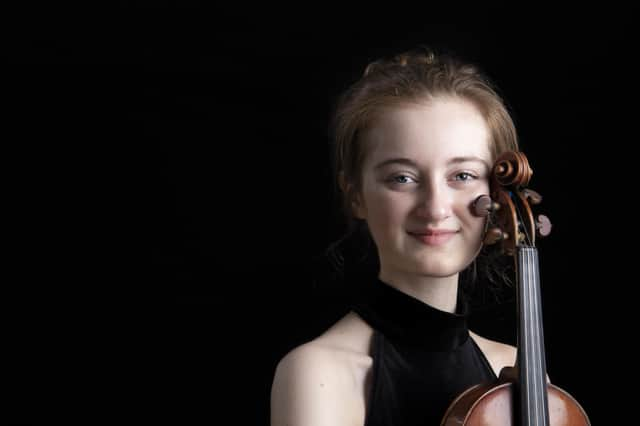Music review: RSNO, Fabien Gabel & Noa Wildschut, Glasgow Royal Concert Hall


RSNO & Noa Wildschut, Glasgow Royal Concert Hall ****
In the popularity stakes, stepping into Nicola Benedetti’s shoes is a tall order, and it was clear on Saturday that a tranche of her fans chose not to come once they learned she was ill and to be replaced by the young Dutch violinist Noa Wildschut. It’s possible the scheduled Scottish premiere of Mark Simpson’s Violin Concerto had already played a part in dissuading some of the faithful.
What they missed, however, was an enchanting and freshly considered performance of Mendelssohn’s Violin Concerto. Wildschut, who first appeared with the RSNO in 2020, allowed her endearing personality to quietly dominate, each sprightly physical gesture accompanied by instinctive musical thoughts ranging from the tenderest caress to the sparkiest bursts of rhythmic artillery.
Advertisement
Hide AdAdvertisement
Hide AdEvery gesture was marked by a generosity that enabled French conductor Fabien Gabel to draw out normally obscured, but symbolic features in the orchestral score. Suddenly, this well-trod concerto seemed so much more than we credit it for. There was also a charming imperfection about Wildschut’s performance, even a touch fragile in the opening bars, that won her audience over.
It followed La nuit et l’amour, a short Interlude by the 19th-century French composer Augusta Holmès, a woman notable for her challenge to the male-dominated Parisian musical elite. If it sounded as syrupy and sentimental as something Max Jaffa might have offered in his once popular seaside concerts, Gabel played it for what it was, lusciously inoffensive, though marred by questionable wind intonation and instrumental balance.
Berlioz’s Symphonie fantastique was initially a slow burner, Gabel not entirely convincing in piecing together the gathering fragments of the dreamy opening movement. But the ensuing journey through the heat of the ball and the melancholy pastoral movement to the wildness of the Witches’ Sabbath was a rip-roaring thrill.